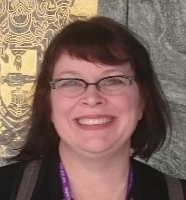As was to be expected, technology was a common theme running through many of the sessions at this year’s digital curation conference. As a LAM devotee and PhD student, I spend much of my time immersed in theories and policies, so this exposure to the newest tools is very useful. As I steer my attention toward my own research on digital objects in cultural heritage settings, IIIF is emerging as a potential tool. Pronounced “triple I-F”, the tool was highlighted brilliantly in Neal Stewart’s demonstration of LSE’s Charles Booth’s London. A mashup of GIS, archival objects, and digital witchery, this magic wand allows the user to explore Victorian London via Charles Booth’s Poverty maps and police notebooks combined with GIS to align maps of current London with the historical one.
A second concept to continue to pop up was that of “Data Wrangling”. I first heard this term in 2008 in the context of the open hardware community in use as a job title, “Data Wrangler”. For myself, this of course always conjures up images of cowboys herding data like so much cattle, enjoying heated cans of beans by the light of a campfire. In the digital curation community, Data Wrangling is a verb, an action, and one that appeared in several of the sessions as part of the workflow of a Data Scientist, including The British Museum’s Alice Daish’s keynote address and Vanderbilt University’s Veronica Ikeshoji-Orlati’s presentation of her project “Developing Data Curation Protocols for Digital Projects at Vanderbilt: Une Microhistoire”
.
It was my absolute pleasure to be in attendance at IDCC 2017 conference with support from the DPC's Leadership Programme. I had a wonderful time meeting the new attendees and being exposed to all kinds of great projects and ideas from within our digital curation community. I look forward to seeing you all again at next year’s conference.
Odile Dumbleton - University College Dublin School of Information and Communication Studies- @odiled











































































































































Comments